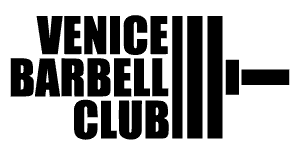Eating Clean on a Budget
Friday April 4, 2014
Prehab:
Fire Hydrants, 10 each side
Shoulder Bridge, 10 reps
Band Super Rack, 30s each
10 Lat Activations
Warmup:
8 Scapular Pushups
10 Goodmornings with Bar
8 Pushups
10 Straight Legged Deadlifts
8 T Pushups
10 Pause Back Squats
Strength:
A) 3x 15 Weighted Back extensions- Rest 90 seconds
B) 3 x 3 Bench Press (as heavy as possible)- Rest 90 seconds
Notes: Focus on keeping elbows in and drive through your heels. Use spotters!
Conditioning:
For time:
21-15-9 reps of:
Kettlebell swing (2 pood/ 1.5)
Dumbbell Hang squat clean (50/35)
Dumbbell Shoulder to Overhead (50/35)
-17 minute Time Cap
Notes: Scale weight as needed and use 1 set of Dumbbells throughout. Kettlebell should be “heavy” for you.
Cool Down:
German Hang, 30s
Jefferson Curl, 5 Slow reps
Band Lat Stretch, 30s each side
Shoulder Bridge Hold, 30s
There is a rumor going around that eating healthy is expensive and can seem unaffordable to those that are strapped for cash. But I am here to tell you that not all rumors are true, especially this one. The fact is, eating clean is no more expensive than following a regular diet, especially if you have a plan of action.
Eating healthy, whole foods now is important to you health later in life. Would you rather be paying bills for the medical care you may need later because you decided to neglect your health? Nutrition is the first place we can all start to pay a little more attention to. It may seem cheaper to go for processed foods, which are full of refined sugars and chemicals, but it IS possible to stick to a clean, healthy and nutritious diet that is fit for achieving your fitness goals, even if money may be tight.
Here are some tips to help you keep your body lean, and your wallet fat.
1. Use Coupons. This may seem like the most logical one. Coupons can be found in local newpapers, or on websites such as www.coupons.com or www.smartsource.com. You can save up to $30 a week, which means saving $1600 per Year! Also watch for store sales, or sign up for newsletters about sales and deals at stores you frequently shop at.
2. Grow your own. Planting a garden out back consisting of your favorite fruits and veggies can save you a ton of money. You can even grow your own herbs indoors year round.
3. Buy Local or In Season. Produce is always cheaper in-season. Also try shopping at your local Farmers Market. The product is much cheaper and fresher than most grocery stores. Find one near you by using the website www.local.com.
4. Plan your meals ahead of time. This can help you buy the appropriate amount of food so you don’t waste any. It will also prevent you from overbuying items you don’t need. Making a grocery list can cut spending by 10%.
5. Buy Generic or Store Brands. This can save you 25-50% by not buying the big named brands. You might have to doublecheck the labels though to be sure they are of the same quality.
6. Shop in Bulk. Stores like Costco or Sam’s Club are great places because they can be frozen or stored for long periods of time and will not perish. They may also be cheaper at these stores. Which leads me to another good tip of buying Frozen fruits and Veggies. This will prevent you from wasting any produce from going bad before you are ready to use it.
7. Cook in Large Amounts. You can freeze portions for later. Leftovers are great for lunches or dinners on a busy week night.
8. Switch Up Proteins. Try going meatless 1-2 times a week. Switch your beef or steak up for other protein sources such as Canned Tuna or Chicken, Eggs or Egg Whites, Beans or Legumes, or Tofu. This will also add a little variety into your meal planning and help prevent boredom by eating the same foods.
9. Stop Eating Out. Start making your own food at home and pack your own lunches and snacks. This may be a little more time consuming, but it will save your wallet in the long run. It will also give you more control over what goes in the food you eat, so you are able to keep it clean. Just practice good portion control, which will also prevent you from wasting any food you may not eat.
10. Give up…. What’s that one thing you are able to do without? Whether it’s cable, or using the car for a few days during the week, going to the movies; whatever it is, we can all find things to give up to help save some extra cash. Budgeting is important to help us stop spending so much money on things we really don’t need or use.
If you are thinking about starting to eat clean, but the budget is holding you back, take a long hard look at what you are spending on take out lattes, fast food, delivered pizza, microwave meals, alcohol, and other items that are not of value. Try keeping track of how many coffees or snacks you buy from the vending machine at work. You may well find yourself saving tons of money by following these tips and eating clean.















